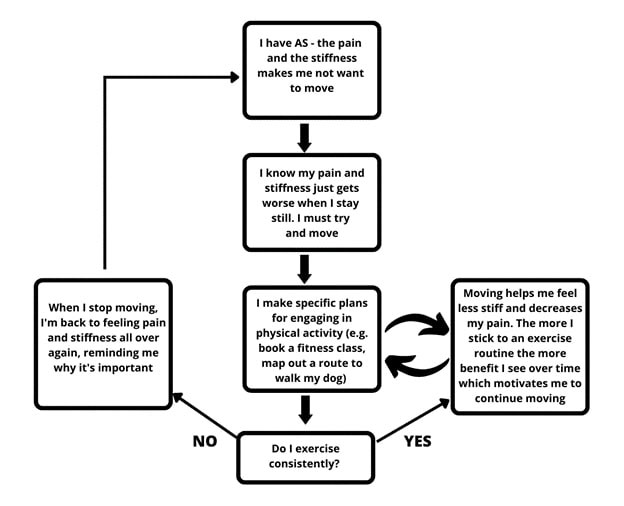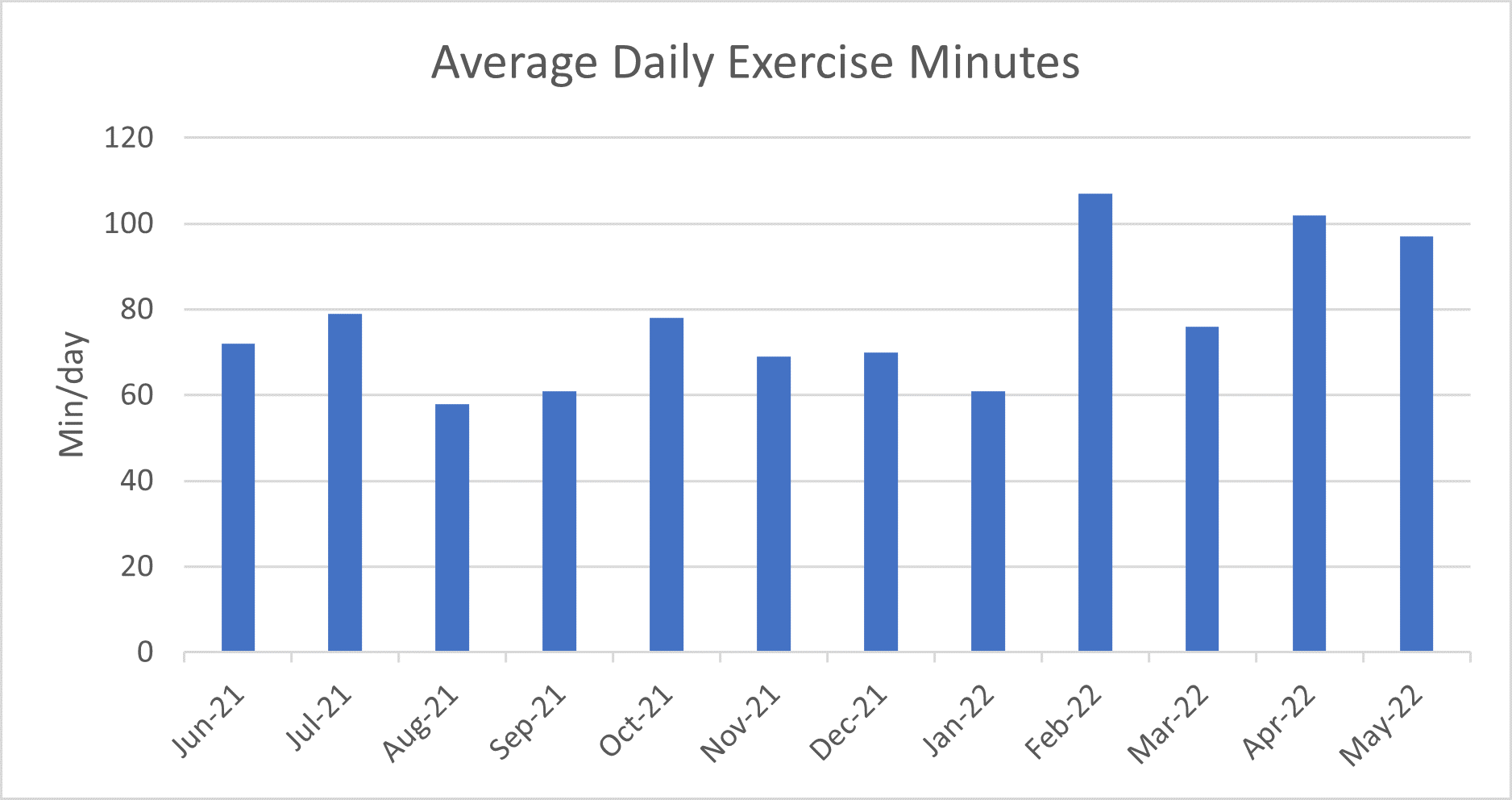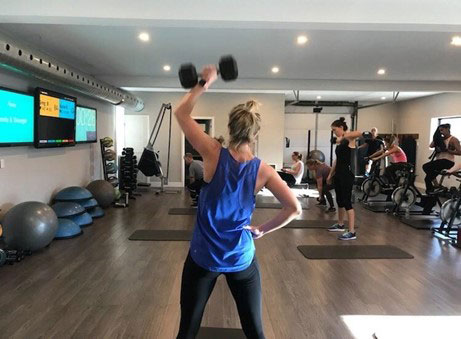Session Information
Date: Saturday, November 12, 2022
Title: Patient Perspectives Poster
Session Type: Poster Session A
Session Time: 1:00PM-3:00PM
Background/Purpose: Patients with autoimmune rheumatic diseases (ARDs) are often caught in a paradox as they experience mobility challenges, but long periods of immobility cause increased stiffness and pain. I have been living with symptoms of Ankylosing Spondylitis (AS) for eleven years. It took almost 4 years from onset of symptoms to my diagnosis. Before I received a diagnosis, I tried to manage my symptoms on a regimen of non-steroidal anti-inflammatory drugs (NSAIDS). I had always been an active person, but the joint pain and stiffness that started when I was twenty-two years old made it almost impossible for me to participate in the activities and sports I enjoyed. I had completely lost my identity as an athlete.
Intervention: When I received my diagnosis at the age of twenty-six, I was started on a biologic treatment for my AS. I was finally able to sleep through the night and I no longer had to worry about leaving the house without my NSAIDS. As my body began to respond to treatment, I slowly began to regain the mobility I had lost and was able to engage in more physical activity. I joined a gym for the first time and committed to going to morning fitness classes to improve my cardiovascular fitness and muscular strength and extend my range of motion.
Maintenance: With my combination of adhering to my treatment of a monthly biologic injection and daily morning exercise routine, I have felt virtually in remission for the last 7 years. Missing even a day or two at the gym can aggravate my stiffness and increase my pain. Committing to a structured exercise plan is what has kept my AS symptoms at bay. This has increased my range of motion and muscle strength as well as helped my mental health. The cumulative effects of this have extended to multiple facets of my well-being making me less stressed, more patient and overall happier.
Quality of Life: I have a newfound appreciation for my body: what it has been through and what it has been able to achieve. Although I know that my biologics might stop working as effectively and I may start to experience flares again, I must trust that as long as I keep moving, I will win the battle against AS.
To cite this abstract in AMA style:
King-Dowling S. Exercise as a Supportive Treatment for My Ankylosing Spondylitis [abstract]. Arthritis Rheumatol. 2022; 74 (suppl 9). https://acrabstracts.org/abstract/exercise-as-a-supportive-treatment-for-my-ankylosing-spondylitis/. Accessed .« Back to ACR Convergence 2022
ACR Meeting Abstracts - https://acrabstracts.org/abstract/exercise-as-a-supportive-treatment-for-my-ankylosing-spondylitis/



